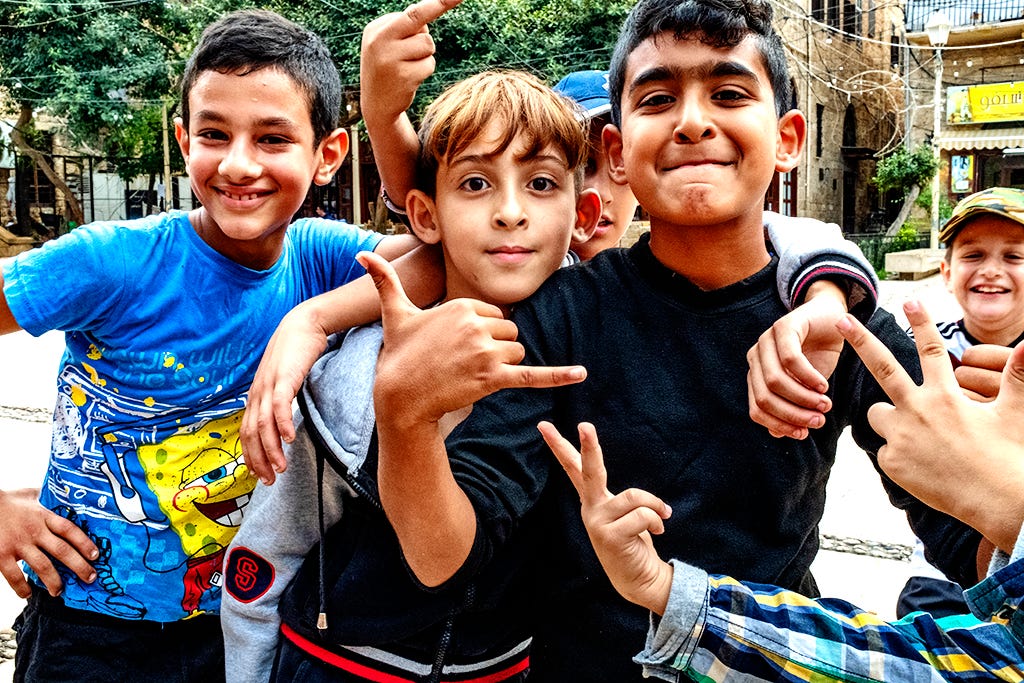Eating Your Children
Eating Your Children
[Ubon Ratchathani, Thailand on 8/30/23]
Polar bears, lions, bamboo rats, dogs and cats have all been observed eating their children. With the last three species, one must wonder if their captivity, no matter how loose or lenient, may have driven them mad. No one likes to be locked down or up.
Most interesting to us narcissists are primates. Some baboons, bonobos, orangutans and macaques have also devoured their newborns, but only after these had died and disintegrated. Having lost their shapes, they were no longer there in any meaningful sense, but had become grotesque mockeries of themselves. Is your skull, hair, fingernail or eyelash still representative of you?
A recent case drew international attention. At an Italian animal refuge in 2017, a Tonkean macaque carried her dead infant for 25 days. Two days after his death, Evalyne became hysterical. Seeing her reflection in a plastic door, she would stare and scream. Still, she kept caring for her baby as she carried him around. Even as fur, skin and flesh fell from his skull, Evalyne groomed and stroke his face.
On the 14th day, he was decapitated, but what’s left of him was constantly with Evalyne. Mother and son were inseparable. Although there was hardly anything left to groom, Evalyne kept at it. On the 19th day, she started to eat bits of her baby’s mummified remains, however, and by the 25th day, she had eaten all of him, including all his bones, except one.
Curiously, the three researchers who observed this episode conclude, “There is no indication that filial cannibalism in the mother Tonkean macaque was due to nutritional or social stress, and such a behaviour could be considered as a normal, albeit rare feature of the behavioural repertoire of macaques […] It is possible that by the stage of cannibalism the mother had lost any clear representation of what the mummified remains of her infant were.”
If Evalyne only ate her baby because she could no longer recognize it, then it was only inadvertent filial cannibalism, but what about humans?
In stadia, fans cheer sport heroes, and reading a great author, we almost feel like we have written his lines ourselves. Often, we even feel superior to the scribbling dilettante, for we don’t just see his scarce virtues, but countless flaws. Thanks to online commenting, we can finally show the world our casual, effortless genius, and with humility even, for we demur from signing our names, especially when our flippancy might be penalized.
If we routinely feel proud at any human achievement, we’re also tainted by any base deed. Anything any man does implicates the rest of his species.
Regarding eating one’s own children, the best known cases are literary. In Herodotus’ Histories (c. 430BC), we’re told of how King Astyages punished General Harpagus for failing to follow an order. Since this act of disobedience had a happy consequence, the king pretended to be glad. Send your son to the palace, he told his general, then come for a banquet in your honor. Relieved, Harpagus returned home:
Coming in, he bade his only son, a boy of about thirteen years of age, to go to Astyages’ palace and do whatever the king commanded, and in his great joy he told his wife all that had happened. But when Harpagus’ son came, Astyages cut his throat and tearing him limb from limb roasted some and boiled some of the flesh, and the work being finished kept all in readiness. So when it came to the hour for dinner and Harpagus was present among the rest of the guests, dishes of sheeps’ flesh were set before Astyages and the others, but Harpagus was served with the flesh of his own son, all but the head and hands and feet, which lay apart covered up in a basket. And when Harpagus seemed to have eaten his fill, Astyages asked him, “Are you pleased with your meal, Harpagus ?” “Exceeding well pleased,” Harpagus answered. Then those whose business it was brought him in the covered basket the head and hands and feet of his son, and they stood before Harpagus and bade him uncover and take of them what he would. Harpagus did so; he uncovered and saw what was left of his son: this he saw, but he mastered himself and was not dismayed. Astyages asked him, “Know you what beast's flesh you have eaten?” “Yea,” he said, “I know, and all that the king does is pleasing to me.” With that answer he took the rest of the flesh and went to his house, purposing then, as I suppose, to collect and bury all.
Mirroring a myth concerning Thyestes, this episode almost certainly didn’t happen. Herodotus didn’t lie, however. A.D. Godley, “Definite acceptance is much rarer than plain expressions of disbelief in what he has heard; ‘they say, but I do not believe it’ is a very frequent introduction.”
Too often, though, Herodotus makes bizarre claims without qualifications, such as there are Indian ants bigger than foxes, or cave dwelling Ethiopians who shriek like bats, and live on lizards, snakes and other creepy creatures, so he was mocked even during his time, but consider all the nonsense we believe in. It’s not too much of an exaggeration, if at all, to charge that every single one of our “fact” is a lie.
Just as no man can see himself with any objectivity, and I shudder violently uttering that comic adjective, mankind’s image of itself can’t be more distorted.
In Ovid’s Metamorphoses of 8AD, there’s a deliciously horrific version of the Greek myth entangling Tereus, Procne and Philomela.
King of Thrace, Tereus was wedded to Procne, daughter of the king of Athens, Pandion. Missing her sister, Procne asked her husband to fetch Philomela for a brief visit, so he sailed to Athens. Returning to Thrace, Tereus promptly raped Philomela in a stone cottage, then severed her tongue to keep her from talking, then he raped her again. Why he didn’t kill her outright should be obvious.
Of all the rapes or attempted rapes in Metamorphoses, Tereus’ assault on Philomela is by far the most barbaric. A proportionate response was needed. What Procne came up with, though, stretches credulity. She decided to kill their son, who looked like his dad, then she tricked Tereus into eating him.
As translated by Horace Gregory, Ovid on Itys being murdered by his mom and aunt:
The boy saw death within his mother's face And screamed, "O mother, mother!" reached his hands As though to throw his arms around her neck, And Procne, with no change of eyes or feature, Ran a quick knife below his beating breast. The boy died with one thrust, but Philomela Stabbed through his throat; the body warm, still breathing, Was cut and pared, some pieces turned on spits, Others boiled in a pot. The room ran blood.
Tereus’ solitary feast:
He sat as on a throne for a state banquet
And eagerly ate flesh of his own flesh;
Blind as he was to what his wife had done,
"Bring Itys here," he called; and she, bright with
Mad joy to be the first to let him know
His fate, cried out, "You have the boy inside."
Again he turned to ask her where he was,
And as he called a third time, Philomela,
Spotted with blood of Itys, her wild hair
Flying, leaped up to him, tossing the boy's
Blood-dabbled head into his face: at no time
Had she the greater need for words of joy
She felt at serving him. Then with a cry
The Thracian tyrant kicked away the table,
And hailed the snakehaired Furies from Hell's pit.
Now, if he could, he'd cut his breast in two
And from it tear the body of his son.Done with their wicked yet guiltless deed, the sisters flew away, and to avenge himself, Tereus flew after them. As birds, they could no longer be observed by Ovid or anyone else, but you can be sure their story didn’t end there. For beast or man, revenge begets revenge ad infinitum, so that’s our glorious history and earthly paradise.
Two thousand years after his death, there are those who suspect Ovid (I almost typed Covid!) of faking his exile to the Black Sea, though this lasted nine years, with works written there, Ibis, Tristia and Epistulae ex Ponto, that reflect his inner and outer conditions. The poet just had an overheated imagination, his doubters charge. Each man uses his midget self as standard or even peak.
Our third ancient literary example of filial cannibalism comes from Seneca (c. 4BC-65AD). A five-act play, it depict how Atreus retaliates against his brother, Thyestes, for “so many crimes, so many sleights,” not least his adultery with Atreus’ wife. To not get even would be “the worst of weaknesses,” so Atreus devises to kill and cook Thyestes’ three sons, then have their unsuspecting dad eat them.
To gain extra satisfaction, Atreus does not relegate the cooking of his nephews to anyone, but must do it himself. Reading Seneca’s long description of this preparation, we can’t help but think, correctly, that it’s actually the poet’s sadism on display, to be shared, of course, by us hypocritical readers. E.F. Watling translates:
The entrails torn from the warm bodies lay Quivering, veins still throbbing, shocked hearts beating. Atreus picked at the pieces, scrutinized The message of the Fates, noted the signs In the internal organs hot with blood. Finding no blemish in the sacrifice, He was content, and ready to prepare The banquet for his brother; hacked the bodies Limb from limb--detached the outstretched arms Close to the shoulders--severed the ligaments That tie the elbow joints--stripped every part And roughly wrenched each separate bone away-- All this he did himself; only the faces, And trusting suppliant hands, he left intact. And soon the meat is on the spits, the fat Drips over a slow fire, while other parts Are tossed to boil in singing copper pans. The fire seems loth to touch the roasting flesh; Two or three times it has to be repaired To feed the crackling hearth, and still, reluctant To do as it is told, burns sulkily. The liver on the spits was heard to squeal; Which cried the more, the bodies or the fires, It would be hard to say. Above the flames A pitch-black smoke ascended, and this too Refused to rise up to the roof, but hung A thick and noisome cloud, filling the house With hideous vapours. Then... O patient Phoebus! Thy light was sunk in darkness at mid-day And thou hadst fled--thou shouldst have left us sooner! The father bites into his children's bodies, Chew his own flesh in his accursed mouth. Drowsy with wine, his glistening hair anointed With scented oil, he crams his mouth with food Till it can hold no more. O doomed Thyestes!
That’s certainly more than a mouthful all right. Atreus’ act is so appalling, even hellish elements protest, with fire refusing to burn, then only reluctantly and sulkily. Smoke won’t rise to the roof, but linger as thick, hideous and noisome vapours. They too must raise their voice. All of nature recoils. The sun sets at noon.
As Thyestes finishes his meal, Atreus taunts him:
ATREUS: Brother, we two must celebrate together This memorable day, which will confirm My kingdom and assure my confidence In everlasting peace. THYESTES: I have dined well; And you have wined me well. Only one thing Can add a culmination to my pleasure-- That I should share my pleasure with my sons. ATREUS: Consider them already with you here In your embrace. They are, and will be, with you For evermore. No member of your family Can now be taken from you. You shall see, As you desire, their faces very soon, And I shall see a father well content Rejoicing in the presence of his loved ones. Your cup shall be filled full, have no more fear. Your sons are taking part in the enjoyment Of festive fare--all the young folk together; They shall be sent for. Let me offer you A cup of wine from our ancestral vintage.
The blood mixed into the wine belongs to them both, so ancestral vintage indeed. Revealing his crime, Atreus recounts how he has cooked his nephews, so we, as readers, are again treated to Seneca’s macabre creativity.
Just this week, I received an email from an Indian friend to say he was in Bangkok. If I was around, let’s meet. Replying, I told him I was in Pakse, Laos, which prompted this observation, “There’s a lot to be said for backwaters—especially when they provide peace and quiet for writing.” Very true. Away from libraries, bookstores and those with terrible postures and badly read books, my thoughts can’t be abetted, nudged, challenged or slapped down. Sitting in Subinh or Lankham Hotel with my unsweetened lime juice, I can rant and rave away.
So far I’ve presented no actual case of filial cannibalism, so let’s look East. In 2018, Lane J. Harris published a collection of items culled from the Peking Gazette. Evolving over centuries, it recorded the emperor’s activities and thoughts, plus whatever he wanted you to think about.
There’s this letter of 7/17/1832:
I, the minister Funiyang’a (the governor of Zhejiang), report to the imperial throne concerning an English barbarian ship which came from Fujian to Zhejiang. She has already been expelled and driven out of the ocean. I now request an imperial order, directing that the military officers of the various cruising camps who neglected to guard against this occurrence may be delivered over to the proper tribunal for trial and punishment; thus awe and respect will be maintained in the government of the ocean. Looking upwards I supplicate his imperial majesty to examine into the affair […] It was ascertained that in the said barbarian ship there were 70 men, and the cargo she brought consisted of calicoes, broad cloths, camlets, and such goods; and the said barbarians presented a barbarian book in one volume, which had been formerly printed. Moreover a barbarian man, named Hoo-Hea-me, presented a public petition to this office, in which with importunate urgency he groaned forth his entreaties for permission to trade. These documents were forwarded to me (the governor) for a thorough investigation and decision […]
Personally, I wouldn’t give some guy named Hoo-Hea-me the time of day. Closer to our sick concern, there were many accounts of people slicing themselves to feed their sick parents. An example from 5/21/1873:
In the district of Jinyang there lived a daughter remarkable for her filial piety, whose name after her marriage, was Mrs. Wang. In the fifth year of the reign of the Emperor Xianfeng, this young lady’s father became dangerously ill, and his filial daughter, lighting incense sticks, announced (to the gods) her desire to sacrifice her own body for her father’s sake. After this announcement, her father’s illness increasing, and his physicians being unable to cure him, this filial daughter secretly cut off a piece of flesh from her arm, and putting it into the medicine prescribed, gave it to her father who, on eating it, immediately recovered. Sometime afterwards the daughter’s female attendants, perceiving the mark on her arm, questioned her as to the cause and learned from her the facts already stated. There was not a single individual of all those who heard the narrative, who was not struck with amazement.
Since such acts merited commemorations, with sanction from the emperor himself, they had to be highly unusual. Petitioning on behalf of “a dutiful son” from his province, one governor even admitted it was “an ignorant display of filial piety.” Though nearly universally applauded, these instances of self-mutilation were freakish.
A tad older than Herodotus, the Buddha is said to have imparted this parable. A couple cross the desert with their infant son. Halfway, they run out of food. To prevent all of them from dying, one has to go, so they kill their baby. Each time they eat a morsel of him, invariably described as jerky, they would beat their chests and cry, “Oh sweetie, where have you gone?!”
Although it has undoubtedly happened many times, the idea of killing your children and eating them is so grotesque, it’s mostly relegated to the realm of myths, parables and figurative speech.
On 4/16/12, there’s this editorial in the Times of Swaziland:
Eating Our Children
Children are an unacceptable sacrifice on the altar of poverty. We are becoming a nation of prostitutes; our desperation for resources, lack of entrepreneurial imagination and social perceptions of casual sex as being acceptable, have combined to create a situation in which our young girls feel that the only way for them to survive is to sell their bodies.
[…]
And selling our children’s bodies for food is a sign of both a desperately short imagination and a lack of moral principles—it is us, the parents, who should be sacrificing whatever we need to sacrifice to feed our children. Pride for example.
To this Swazi writer, debasing children is akin to eating them. With their spirit and mind irrelevant if not crapped on, they’re reduced to meat.
How is any of this relevant to Western parents and children? Though only some have been steered into mutilating themselves, many others are mentally castrated. There’s no logic left, much less learning. Each waking moment, they’re mind raped. Bullshit and the Satanic shape their world view. To sustain their parents’ robust appetite, they inherit societies in ruins. Most are even injected with poison, due to their elders’ idiocy. They’re not just robbed of the past, but present and future.
Stuffed with his offspring, Thyestes can’t help but belch, burp, fart rhythmically and smack his lips.
[Pakse, Laos on 8/28/23]
[Sidon, Lebanon on 11/11/20]
[Upstate New York on 8/8/14]
[Klos, Albania on 6/6/21]
Source: Postcards from the End





Comments
Post a Comment